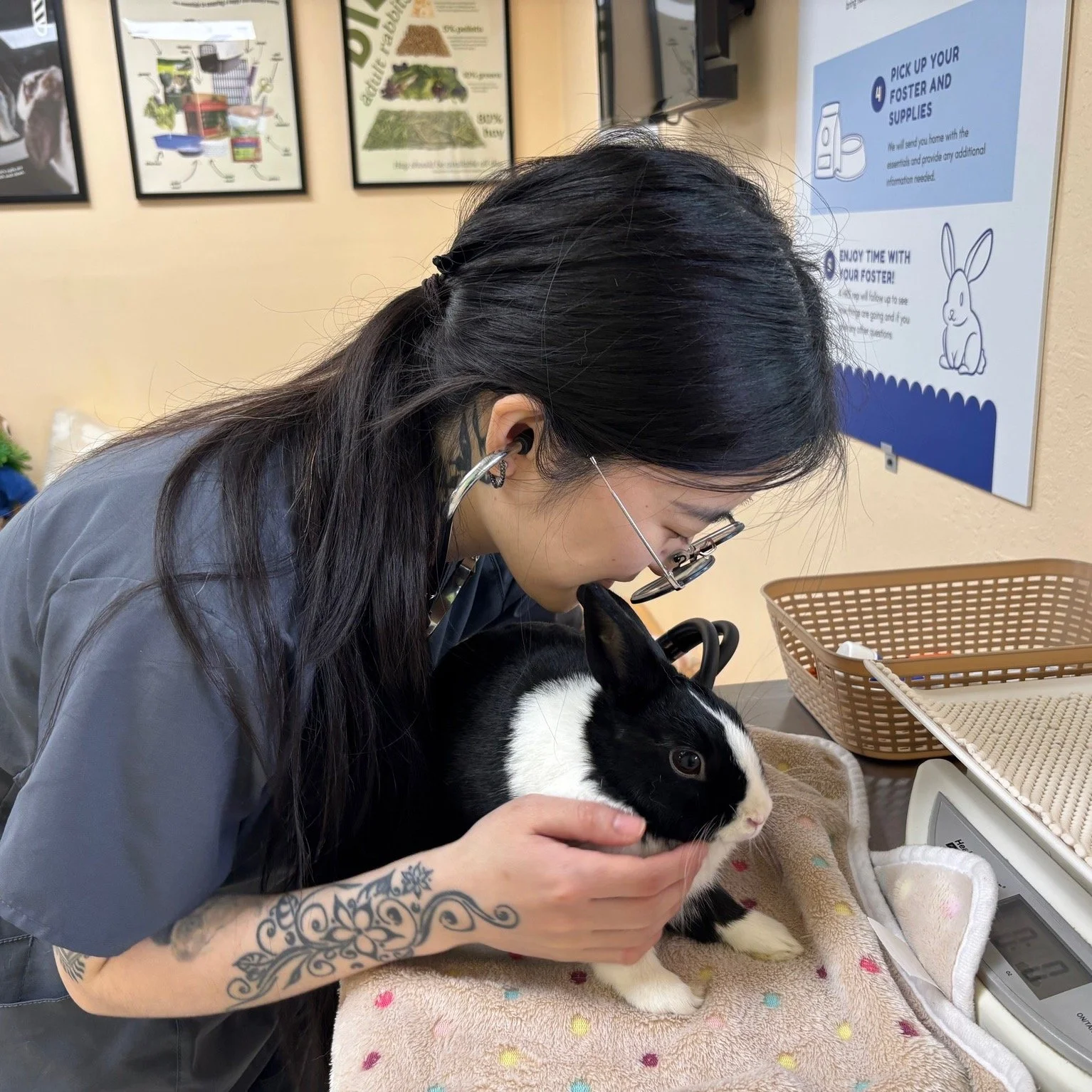Why You Should Microchip Your Rabbit
HRS rabbit Shrimp receives an exam from a student training to become a registered veterinary technician (RVT).
Most rabbits adopted from rescues are microchipped, but should your rabbit need a microchip, you can schedule an appointment with your veterinary office.
August 15th is National Check the Chip Day, and it’s a great opportunity to talk about the benefits of microchipping your rabbit (and other pets) and why it’s critical to keep your registration information up to date.
Every rabbit who is adopted from House Rabbit Society is microchipped. What is a microchip? It is a small, electronic chip that’s about the same size as a grain of rice. It’s implanted under the skin in a rabbit's typical near the shoulder area using a hypodermic needle and can be read by a scanner at an animal shelter or veterinary clinic. A microchip does not track your rabbit; it is not a GPS. Microchipping is a safe procedure, and doesn’t require the rabbit to be sedated. It’s no more painful than a typical injection, like for subcutaneous fluids, an injectable medication, or a vaccine.
Often we’re asked why someone should microchip their rabbit if they plan to keep the rabbit indoors (which is always best). The answer is that accidents and emergencies can happen! If you and your rabbit ever become separated, a microchip serves as a form of identification that can help reunite you.
Here in California, where wildfires are a real concern, evacuations can happen quickly, and you may need to temporarily board your rabbit or leave them in someone else’s care. In these situations, a microchip is definitive proof that your rabbit belongs to you and can make all the difference in getting them back safely. If for whatever reason your rabbit escapes your home, the information you provide to the microchip registry will be what’s used to contact you if your rabbit is lost, found, and their microchip scanned by a shelter or veterinary office.
It can be critical to have your pets microchipped. Take this statement from the American Veterinary Medical Association (AVMA):
“In fact, a study from the AVMA of more than 7,700 stray animals at animal shelters in 23 states showed that microchipped animals are far more likely to be returned to their owners. In that study, microchipped stray dogs were returned to their owners at more than double the overall rate for all stray dogs. For stray cats, the difference in return rates was even more dramatic.
For microchipped animals that weren't returned to their owners, the most common reason was an incorrect or disconnected owner telephone number in the microchip registry database. So don't forget to register your pet’s microchip, and keep your contact information up to date.”
It’s completely understandable to have privacy concerns about your rabbit’s microchip, but there’s no need to worry. The microchip registry only stores the contact information you choose to provide when you register or update the chip, nothing more. Approved personnel, like veterinary staff or shelter workers, can access your contact information through a microchip database, not just any random person.
To learn more about the benefits of microchipping your rabbit and other pets, read a very thorough microchipping FAQ from the AVMA at avma.org.


